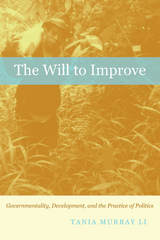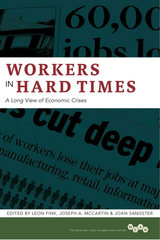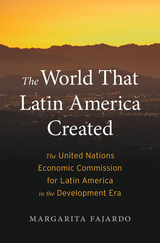6 start with W start with W

William M. Epstein charges that most current social welfare programs are not held to credible standards in their design or their results. Rather than spending less on such research and programs, however, Epstein suggests we should spend much more, and do the job right.
The American public and policymakers need to rely on social science research for objective, credible information when trying to solve problems of employment, affordable housing, effective health care, and family integrity. But, Epstein contends, politicians treat welfare issues as ideological battlegrounds; they demand immediate results from questionable data and implement policies long before social researchers can complete their analyses. Social scientists often play into the political agenda, supporting poorly conceived programs and doing little to test and revise them. Analyzing Aid to Families with Dependent Children (AFDC) and the recent welfare reform act, Food Stamps, Medicaid, job training, social services, and other programs, Epstein systematically challenges the conservative’s vain hope that neglect is therapeutic for the poor, as well as the liberal’s conceit that a little bit of assistance is sufficient.

This book looks beyond politics to show how the ability of the U.S. government to implement policies is strongly affected by various economic constraints. These include the credibility of the policies, the ability of government to commit to them, the extent to which firms and consumers rationally anticipate their effects, whether the success of a policy further encourages firms and individuals to behave in intended ways, and whether the behavior of such actors can be sustained without continued government intervention.
The authors apply these concepts to four areas of policy: macroeconomic policies to promote employment and economic growth, redistributive policies to benefit the poor and the elderly, production policies to provide goods and services, and regulatory policies to guide the behavior of firms and individuals. In doing so they provide plausible explanations of many puzzling phenomena—for example, why government has been successful in reducing cigarette smoking, but has failed to get people to install and maintain emission-control devices in their cars.
This book recasts debates about public policy, avoiding conventional “pro-government” or “anti-government” positions; rather, it helps to predict when public policy will succeed.

Demonstrating that the “will to improve” has a long and troubled history, Li identifies enduring continuities from the colonial period to the present. She explores the tools experts have used to set the conditions for reform—tools that combine the reshaping of desires with applications of force. Attending in detail to the highlands of Sulawesi, she shows how a series of interventions entangled with one another and tracks their results, ranging from wealth to famine, from compliance to political mobilization, and from new solidarities to oppositional identities and violent attack. The Will to Improve is an engaging read—conceptually innovative, empirically rich, and alive with the actions and reflections of the targets of improvement, people with their own critical analyses of the problems that beset them.


Since the Industrial Revolution, contributors argue, factors such as race, sex, and state intervention have mediated both the effect of economic depressions on workers' lives and workers' responses to those depressions. Contributors also posit a varying dynamic between political upheaval and economic crises, and between workers and the welfare state.
The volume ends with an examination of today's "Great Recession": its historical distinctiveness, its connection to neoliberalism, and its attendant expressions of worker status and agency around the world. A sobering conclusion lays out a likely future for workers--one not far removed from the instability and privation of the nineteenth century.
The essays in this volume offer up no easy solutions to the challenges facing today's workers. Nevertheless, they make clear that cogent historical thinking is crucial to understanding those challenges, and they push us toward a rethinking of the relationship between capital and labor, the waged and unwaged, and the employed and jobless.
Contributors are Sven Beckert, Sean Cadigan, Leon Fink, Alvin Finkel, Wendy Goldman, Gaetan Heroux, Joseph A. McCartin, David Montgomery, Edward Montgomery, Scott Reynolds Nelson, Melanie Nolan, Bryan D. Palmer, Joan Sangster, Judith Stein, Hilary Wainright, and Lu Zhang.

How a group of intellectuals and policymakers transformed development economics and gave Latin America a new position in the world.
After the Second World War demolished the old order, a group of economists and policymakers from across Latin America imagined a new global economy and launched an intellectual movement that would eventually capture the world. They charged that the systems of trade and finance that bound the world’s nations together were frustrating the economic prospects of Latin America and other regions of the world. Through the UN Economic Commission for Latin America, or CEPAL, the Spanish and Portuguese acronym, cepalinos challenged the orthodoxies of development theory and policy. Simultaneously, they demanded more not less trade, more not less aid, and offered a development agenda to transform both the developed and the developing world. Eventually, cepalinos established their own form of hegemony, outpacing the United States and the International Monetary Fund as the agenda setters for a region traditionally held under the orbit of Washington and its institutions. By doing so, cepalinos reshaped both regional and international governance and set an intellectual agenda that still resonates today.
Drawing on unexplored sources from the Americas and Europe, Margarita Fajardo retells the history of dependency theory, revealing the diversity of an often-oversimplified movement and the fraught relationship between cepalinos, their dependentista critics, and the regional and global Left. By examining the political ventures of dependentistas and cepalinos, The World That Latin America Created is a story of ideas that brought about real change.
READERS
Browse our collection.
PUBLISHERS
See BiblioVault's publisher services.
STUDENT SERVICES
Files for college accessibility offices.
UChicago Accessibility Resources
home | accessibility | search | about | contact us
BiblioVault ® 2001 - 2024
The University of Chicago Press









